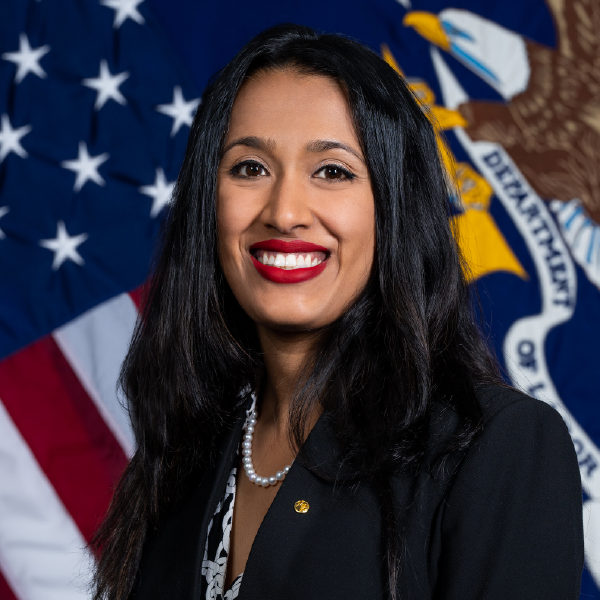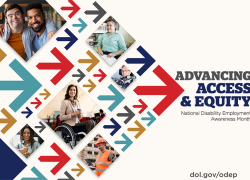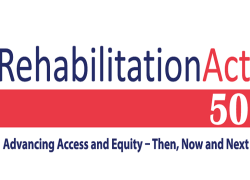
This year marks 30 years since the signing of the Family and Medical Leave Act (FMLA), landmark legislation that today ensures millions of workers in America do not have to choose between maintaining employment and meeting personal responsibilities.
Among these responsibilities may be managing one’s own serious health condition. This dimension of the law, the “M” in “FMLA,” is an important part of the legal infrastructure protecting workers with disabilities in the U.S. That’s because for many people, it’s key to retaining employment after the onset of a disability, whether temporary or long-term, or undergoing treatment for a chronic condition.
This includes certain people who have had COVID-19 and are now experiencing new or ongoing symptoms. Commonly called Long COVID, this condition can last weeks, months or years and can worsen with physical or mental activity, including at work. Several participants in our Long COVID at Work National Online Dialogue noted that leave is critical to helping people with Long COVID get needed treatment and rest to manage their symptoms.
One participant shared that doctors in her Long COVID clinic spoke to her about the relationship between work-related stress and Long COVID symptoms. Access to leave allowed the individual to reduce her work hours and take the time she needed for treatment and rest. Fortunately, she recovered and is now back working full-time. But without the flexibility to take time off, she does not believe this would be the case. She hopes more people with Long COVID can access flexibilities, such as those provided by the FMLA, if needed. She also urges the federal government to research effective treatment, something the Biden-Harris administration has prioritized, as outlined in its National Research Action Plan on Long COVID.
It's important to note that, for an employee to qualify for FMLA leave due to Long COVID or any other serious health condition, they must be unable to work at all, or unable to perform any one of the essential functions of their position. This includes when an employee must be absent to receive medical treatment for a serious health condition. Their employer may also require certification from a health care provider. Determinations are made on a case-by-case basis and may depend on the severity of symptoms. Covered employees may also take FMLA leave to care for a child, spouse or parent who has a serious health condition. In either situation, whether the employee takes leave to manage their own health condition or care for a family member with one, the employee must be eligible for FMLA leave and work for a covered employer.
Someone with Long COVID may also be entitled to leave as a reasonable accommodation under the Americans with Disabilities Act. This is important for workers to understand, because the FMLA has a higher threshold for coverage for a private employer than the Americans with Disabilities Act (50 vs. 15 employees), in addition to requiring the employee to have worked for the employer for 12 months and a certain number of hours over the 12 months before leave is taken.
Of course, as with all chronic health conditions, each person’s experience with Long COVID may be different, and in many cases, people can continue working with on-the-job accommodations. The Job Accommodation Network, funded by the department’s Office of Disability Employment Policy, offers guidance solutions for common Long COVID symptoms, from leave to telework to tools, such as ergonomic equipment and memory aids and apps.
Like the nation’s workforce, both the FMLA and Americans with Disabilities Act have proven resilient in responding to unanticipated circumstances in recent years. At the department, we’re committed to ensuring they continue to serve workers’ needs for years to come, so that workers with Long COVID, or any serious health condition for that matter, can keep working or return to work once ready.
Anupa Iyer Geevarghese is the chief of staff for the Office of Disability Employment Policy.

 U.S. Department of Labor Blog
U.S. Department of Labor Blog


